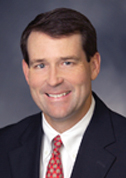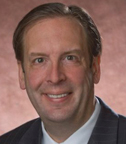© 2014 The Texas Lawbook.
By Natalie Posgate – (July 16) – Texas lawyers from three firms are involved in Houston and New Jersey-based NRG Energy Inc. and Japanese JX Nippon Oil & Gas Exploration Corp.’s recently announced 50/50 joint venture to form a carbon capture system near Houston.
The companies claim the joint venture, which is valued at $1 billion, will build the world’s largest cost-combustion carbon capture and sequestration (CCS) facility on an existing coal plant in Fort Bend County, Texas. The name of the JV is the Petro Nova Carbon Capture Project.
Andrews Kurth is representing NRG in the transaction, with Houston partners David Runnels and Giji John as the lead attorneys. Also involved were other attorneys from the firm’s Houston, Austin, Dallas, The Woodlands and Washington, D.C. offices, including partners Lino Mendiola III, Jeff Dodd, Mark Thurber, Will Becker, Michael Dinnin, Mark Arnold and Lisa Shelton; of counsel Stephanie Kroger; and associates Eleanor Verret, Gabrielle Stokes, Ali Farish, Jonathan Heins and Jason Reiner.

“This project has enormous potential to make CCS economically viable and competitive in the global market,” Runnels said in a written statement.
“The project is the first commercial-scale facility of its kind in the United States and will demonstrate the viability of retrofitting an existing coal-fired power plant with a commercial-scale carbon capture system,” he added.
The Andrews Kurth team was heavily involved in the various components of the transaction, including the negotiation of a partial $167 million grant from the U.S. Department of Energy. The firm also assisted NRG in its multi-tranched project financing provided by the Japan Bank of International Cooperation and Mizu Bank, Ltd. New York-based international law firm Milbank, Tweed, Hadlen & McCloy represented the lenders.
The firm has previously advised NRG in energy projects, but could not provide any specific details.

In-house involvement from NRG was led by two Houston attorneys: General Counsel Averill Conn of Petra Nova and eVGO Network (subsidiaries of NRG) and regional NRG GC Chris O’Hara. They work under NRG’s executive vice president and general counsel, David R. Hill, who is a previous GC of the U.S. Department of Energy.
Before joining NRG, Conn was an in-house lawyer for Reliant Energy, and became an attorney for NRG when it acquired the retail operations of Reliant in May 2009. Before her in-house career, Conn was an associate at Bracewell.

Before becoming the regional GC, O’Hara served various other management positions for NRG, including interim GC of the parent company for part of 2012, and was also the GC of Reliant for a couple years. He has led NRG’s legal team on various large transactions, including the company’s 2012 merger with GenOnEnergy, 2005 acquisition of Texas Genco (an $8.3 billion deal), 2006 acquisition of West Coast Power, 2009 acquisition of Reliant, 2010 acquisitions of Dynegy portfolio and Green Mountain Energy, 2011 acquisition of Energy Plus, and various others.
Houston Hogan Lovells attorney Dave Locascio leads the transaction for JX. He received assistance from Tokyo/Houston senior associate Luke Edney and attorneys from Hogan Lovells’ Denver and Washington, D. C. offices. Loscasio said in an email that this is the first time for the firm to represent JX on a “material matter.”
The joint venture, called the Petra Nova Carbon Capture Project, will capture 90 percent of the carbon dioxide (CO2) in the processed flue gas from an existing unit at the W.A. Parish power plant in Fort Bend County, Texas.
The captured CO2 will create revenue for the JV by increasing domestic oil production at the West Ranch Oil Field, which is jointly owned by NRG and Houston-based Hilcorp Energy Company. The CO2 will be transferred from the W.A. Parish power plant to the oilfield through an 82-mile pipeline
Houston Bracewell partner Alan Rafte represented Hilcorp for its involvement in the deal.
© 2014 The Texas Lawbook. Content of The Texas Lawbook is controlled and protected by specific licensing agreements with our subscribers and under federal copyright laws. Any distribution of this content without the consent of The Texas Lawbook is prohibited.
If you see any inaccuracy in any article in The Texas Lawbook, please contact us. Our goal is content that is 100% true and accurate. Thank you.
